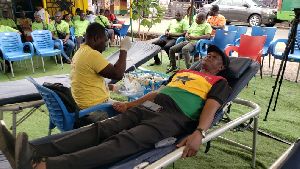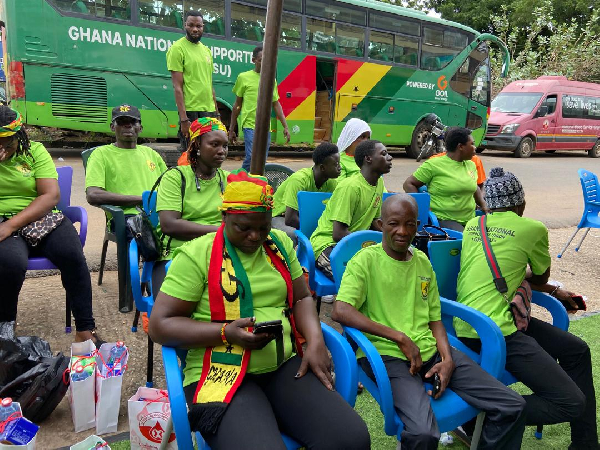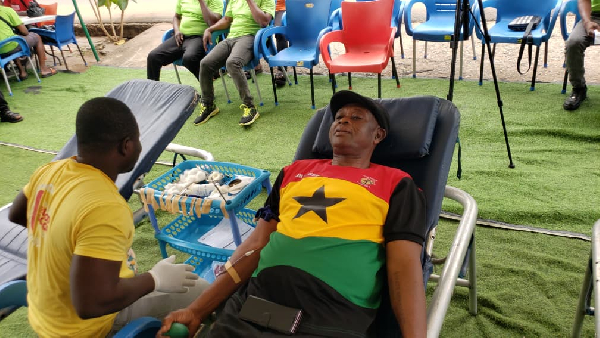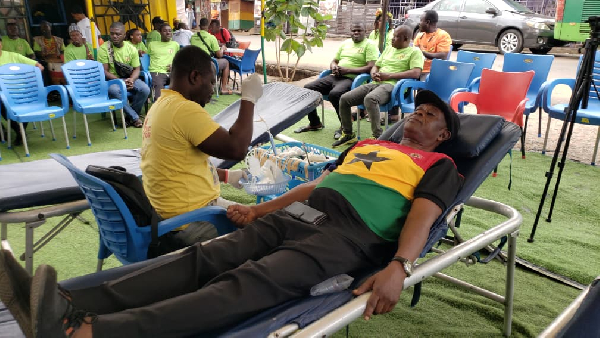 The exercise took place in Accra on August 13, 2025
The exercise took place in Accra on August 13, 2025
The Ghana National Supporters Union (GHANSU) has organized a blood donation exercise to support the National blood Service, in an effort to help save lives across the country.
The exercise took place in Accra on August 13, 2025, and drew members of the union, health officials and volunteers from various communities.
The founder and leader of the Ghana National Supporters Union, Ibrahim Boakye, popularly known as One Man Supporter, said the initiative was part of the union’s commitment to serving the nation beyond cheering on sports teams.
“As supporters of the national team and other sports activities, we aim to help others so that especially those in need of blood can have access,” Boakye explained.
“This is our offer to the nation, to contribute in our own way to saving lives.”
Another member of the group, Samuel Aggrey, also known as Obour, reiterated the union’s dedication to social causes, adding, “We love to support our country not only in sports but also in areas that save lives. This is our way of giving back to Ghana.”
Representatives from the National Blood Service were on hand to oversee the exercise and ensure all safety protocols were followed.
Felix Tetteh, a donor organizer with the National Blood Service, explained the importance of the event.
“GHANSU contacted us about organizing a blood donation exercise, and we wholeheartedly agreed because the need is great,” he said.
“We want to support the sick and those who need blood at our various hospitals. Recently, there have been many road accidents, and survivors often require blood transfusions. Beyond that, pregnant women, cancer patients, and people with sickle cell disease all rely on donated blood.”
Felix outlined the process donors go through, “When you come, you first register, then we screen you to check if you are eligible. If you can donate, you proceed to give blood. If not, we explain why and advise you on what to do so you can donate in the future.”
He assured the public of the safety and traceability of donated blood.
“Every blood bag is numbered with a unique code to identify the donor. Once we receive the blood, it’s screened for HIV, syphilis, hepatitis B, and hepatitis C. This ensures there is no mixing or confusion,” he noted.


